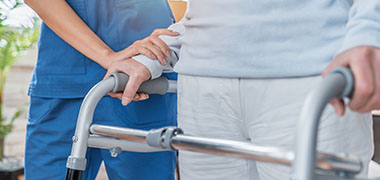
Allied Health courses in Central Coast
Course providers in Central Coast
The following providers offer Allied Health courses in Central Coast.


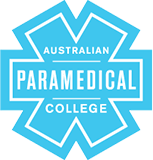







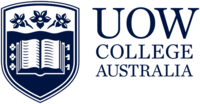


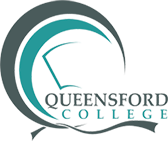


























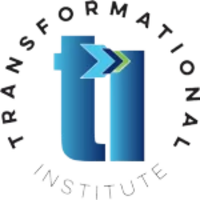








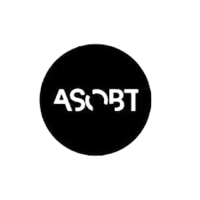










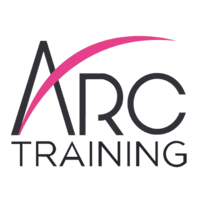







Career Pathfinder
Skills shortages + AI Exposure
Discover in-demand careers and understand how each role may be impacted by AI and automation.
- See in-demand occupations across Australia
- Check AI Exposure ratings
- Compare training duration and average income
Common questions
Occupational therapists help patients perform tasks in daily life, while physiotherapists help patients improve their movement, strength and function. The term occupation refers to everyday life tasks, while physiotherapy refers to physical therapy. Both are science-based allied health roles that aim to improve quality of life through prevention, maintenance and treatment.
 Stephen Charlton
Stephen Charlton
You can become qualified to work as an occupational therapist by completing one of the following degrees, depending on your educational pathway:
- Master of Occupational Therapy (postgraduate degree)
Average duration: 24 months - Bachelor of Occupational Therapy (Honours)
Average duration: 4 years - Bachelor of Occupational Therapy
Average duration: 4 years
 Stephen Charlton
Stephen Charlton
You can become qualified to work as a physiotherapist by completing one of the following degrees, depending on your educational pathway:
- Doctor of Physiotherapy (postgraduate degree)
Average duration: 3 years - Master of Physiotherapy (postgraduate degree)
Average duration: 24 months - Bachelor of Physiotherapy (Honours)
Average duration: 4 years - Bachelor of Physiotherapy
Average duration: 4 years
 Stephen Charlton
Stephen Charlton
Yes, you need to complete an accredited degree to work legally as an occupational therapist or physiotherapist in Australia. The two core pathways are completing a bachelor’s degree or a postgraduate degree. The Occupational Therapy Council of Australia and Australian Physiotherapy Council are responsible for accrediting such courses.
 Stephen Charlton
Stephen Charlton
Yes, overseas-qualified practitioners can work in Australia by registering with the Occupational Therapy Board of Australia or Physiotherapy Board of Australia. Practitioners who are currently registered with the Occupational Therapy Board of New Zealand or Physiotherapy Board of New Zealand can apply directly for Australian registration. Other overseas-qualified practitioners have to fulfil the requirements listed on the relevant webpages of the Occupational Therapy Board of Australia and Physiotherapy Board of Australia.
 Stephen Charlton
Stephen Charlton
If you have already completed an approved degree in a different discipline, you can gain an accredited postgraduate degree to become qualified to work as an occupational therapist or physiotherapist. Examples of such degrees are a Master of Occupational Therapy, Master of Physiotherapy and Doctor of Physiotherapy. Postgraduate degrees in these fields may have additional entry requirements, including but not limited to health-related prerequisite subjects.
 Stephen Charlton
Stephen Charlton
In some cases, completing vocational education and training (VET) in a related discipline can allow you to meet the entry requirements for a bachelor’s degree in these fields. Entry requirements vary between educational providers. Some providers offer a VET entry pathway with a minimum of a Certificate IV, but others require a minimum of a diploma or advanced diploma. Some providers do not offer a VET pathway for these courses at all. Therefore, it’s wise to confirm the entry requirements for your desired bachelor’s degree before starting a VET course.
 Stephen Charlton
Stephen Charlton
In addition to completing an accredited degree, occupational therapists and physiotherapists will need to register with the Occupational Therapy Board of Australia or Physiotherapy Board of Australia to work in Australia. The Australian Health Practitioner Regulation Agency (AHPRA) administers practitioner registration on behalf of these boards. There are different requirements to gain registration for Australian-qualified practitioners, New Zealand-registered practitioners, and other overseas-qualified practitioners.
 Stephen Charlton
Stephen Charlton
Career paths for these professions include independent contracting, starting a practice, working in community care, paediatrics, mental health, rehabilitation, disability, medical or aged care sectors).
 Stephen Charlton
Stephen Charlton
Jobs and Skills Australia reports that the median full-time weekly earnings for occupational therapists and physiotherapists in 2024 are $1,526 and $1,710, respectively. These figures can be contrasted with Australian workers of all occupations, who earn a median full-time weekly income of $1,697.
 Stephen Charlton
Stephen Charlton
There is a significant demand for occupational therapists across Australia. Jobs and Skills Australia’s Occupation Shortage List indicates that the labour market had a shortage of occupational therapists across all states and territories from 2022 to 2024.
 Stephen Charlton
Stephen Charlton
There is substantial demand for physiotherapists in Australia. Jobs and Skills Australia’s Occupation Shortage List indicates that the labour market experienced a shortage of occupational therapists and physiotherapists in most states and territories from 2022 to 2024.
 Stephen Charlton
Stephen Charlton
Working as an occupational therapist or physiotherapist comes with the satisfaction of directly helping to improve patients’ quality of life. Furthermore, the job market is promising, as Jobs and Skills Australia reports there is significant labour market demand for both professions. The future outlook is also positive, as Jobs and Skills Australia reports that the annual employment growth in 2024 for occupational therapists and physiotherapists is 2,200 and 4,100, respectively.
 Stephen Charlton
Stephen Charlton
Further reading


What can you do with a Certificate IV in Allied Health Assistance (Physiotherapy)?
3rd March 2022
What can you do with a Certificate III in Allied Health Assistance?
8th January 2020All courses
- HLT33021 Certificate III in Allied Health Assistance
- HLT47321 Certificate IV in Health Administration
- CHC43315 Certificate IV in Mental Health
- CHC53315 Diploma of Mental Health
- HLT52021 Diploma of Remedial Massage
- HLT41120 Certificate IV in Health Care
- HLT54121 Diploma of Nursing
- Bachelor of Biomedical Science (Health)
- CHCCCS020 Respond Effectively to Behaviours of Concern
- Master of Speech Pathology
- CHC43215 & CHC42021 Dual Certificate IV in Alcohol and Other Drugs & Certificate IV in Community Services
- Undergraduate Certificate in Health Care Communications
- Master of Health Science (Osteopathy)
- Bachelor of Speech Pathology
- Master of Occupational Therapy
- HLTCAR001 Perform Electrocardiography (ECG)
- CHCMHS001 Work with People with Mental Health Issues
- HLT33021 & HLT43021 Dual Certificate III in Allied Health Assistance & Certificate IV in Allied Health Assistance
- HLT33015 & HLT43015 Dual Certificate III in Allied Health Assistance & Certificate IV in Allied Health Assistance (Occupational Therapy)
- Bachelor of Clinical Exercise Physiology
- HLT33015 & HLT43015 Dual Certificate III in Allied Health Assistance & Certificate IV in Allied Health Assistance
- HLT52515 Diploma of Reflexology
- CHCSS00070 Assist Clients with Medication Skill Set
- HLT43021 Certificate IV in Allied Health Assistance (Physiotherapy and Occupational Therapy Focus)
- BSB30120 Certificate III in Business (Medical Administration)
- Bachelor of Medical Imaging
- Bachelor of Physiotherapy (Honours)
- CHCCCS010 Maintain a High Standard of Service
More about Allied Health courses
Are you looking to begin or advance your career in the Allied Health field in the Central Coast region? You’ve come to the right place! There are 48 Allied Health courses available in Central Coast, 2260, offering a wide range of training options tailored to your experience level. Whether you're starting fresh or looking to build on your existing qualifications, there's something for everyone. Consider enrolling in a beginner course such as the Certificate III in Allied Health Assistance or the Certificate III in Individual Support (Disability) to kickstart your career.
For those who already have prior experience or qualifications, there are numerous advanced courses to elevate your skills. Popular options include the Certificate IV in Mental Health and the Diploma of Remedial Massage. With such a variety of options available in Central Coast, you're bound to find a course that fits your professional aspirations.
The Central Coast community is known for its vibrant healthcare industry, and pursuing education in Allied Health can open doors to many exciting career opportunities. Courses such as the Master of Occupational Therapy and the Bachelor of Nursing are great pathways to becoming a valued member of the healthcare sector, and they provide vital skills that are in demand in the local area.
When it comes to flexible learning, there are also a number of short courses available, including skill sets that can enhance your qualifications. For instance, the Assist Clients with Medication Skill Set and the Manage Personal Stressors In The Work Environment skill set can be particularly beneficial for those not ready to commit to a full qualification but still wishing to enhance their competencies in the Allied Health field.
Explore your potential today by checking out the full list of Allied Health courses in Central Coast on Courses.com.au. With beginner and advanced courses available, you're sure to find the right fit for your educational journey. Take the next step towards a rewarding career in Allied Health and make a positive impact in your community!
